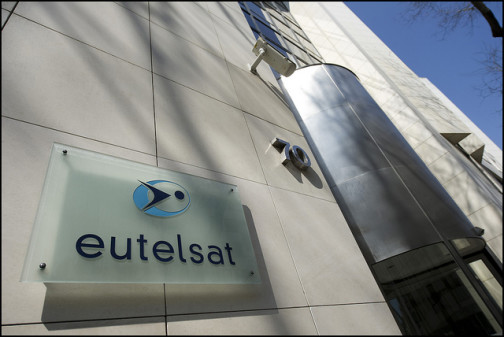
After more than 40 years of operation, DTVE is closing its doors and our website will no longer be updated daily. Thank you for all of your support.
Analysts reflect on ‘thoroughly disappointing’ Eutelsat numbers
 Analysts at Berenberg have admitted that satellite operator Eutelsat’s Q1 revenues were “thoroughly disappointing”, with the top line depressed by a contract termination in Sub-Saharan Africa and the return of two transponders by a Russian customer.
Analysts at Berenberg have admitted that satellite operator Eutelsat’s Q1 revenues were “thoroughly disappointing”, with the top line depressed by a contract termination in Sub-Saharan Africa and the return of two transponders by a Russian customer.
The bank has retained its buy recommendation on the company’s stock however, based on an assumption that the Paris-based operator’s focus on cutting costs and maintaining cash-flow will enable it to deliver a shareholder return yield over the coming years.
Berenberg’s analysis said the negative news coming from Eutelsat meant that they were “uncomfortable with the amount of ‘exceptional’ negative events in broadcast” in particular.
The assessment follows Eutelsat missing its financial targets for Q1with a bigger than expected decline in revenues. CEO Rodolphe Belmer blamed the dip on “worsening trends in data and professional video and the unplanned return of a couple of transponders in Russia”.
The company posted revenues of €335.1 million, down 6% on a like -for-like basis. Revenues from the company’s operating verticals stood at €346.5 million, down 6.2% on a like-for-like basis.
The analysts predict that Eutelsat will nevertheless recover in the second half, in part because year-on-year comparables that had an impact in Q1 will ease, and in part because new revenues will come through from Eutelsat 7C, launched in January, which offers video capacity over Africa, and the from the ramp-up of Eutelsat’s African broadband project.
Provided there are no serious issues with the just-launched Eutelsat 5 West B satellite, currently being monitored after an incident on one of its two solar arrays, Eutelsat should also begin garnering revenues from the European Geostationary Navigation Overlay Service (EGNOS) payload on that satellite, Berenberg said.
Eutelsat launched a cost-cutting plan, LEAP-2, at the end of last month, involving laying off about 100 employees outside of France, freezing salaries within France and suspending new hires. The company plans to save between €20-25 million by the end of fiscal year 2022 through the new measures.

